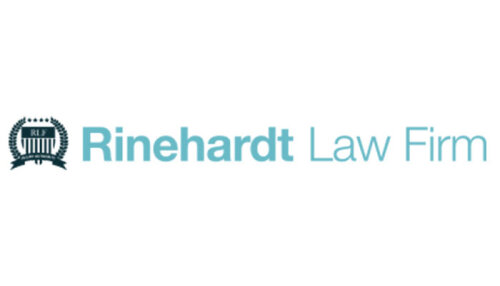Best Defamation Lawyers in Ontario
Share your needs with us, get contacted by law firms.
Free. Takes 2 min.
List of the best lawyers in Ontario, United States
1. About Defamation Law in Ontario, United States
Ontario is a province in Canada, and defamation law here is primarily shaped by Canadian common law combined with Ontario statutes. Civil defamation actions typically involve a false statement published to a third party that harms a person’s or organization’s reputation. Remedies usually include damages, and in some cases injunctions or apologies ordered by a court.
In Ontario defamation claims are generally governed by the balance of probabilities standard. The plaintiff must show that the statement was published, false, and caused harm unless a defense applies. The landscape has increasingly involved online platforms, where posts, comments and reviews can trigger civil actions across borders or jurisdictions within Canada.
Key developments in recent years include the emphasis on responsible reporting when the matter concerns public interest. The Supreme Court of Canada has clarified how journalists and media defendants may rely on defenses such as responsible communication in certain contexts. This is especially relevant for Ontario readers and clients who use digital media to publish or respond to claims.
In cases involving media reporting on matters of public concern, the Supreme Court of Canada recognizes a defense of responsible communication if the reporter acts with serious intent to verify the information and provide a fair account. (Grant v Torstar Corp, 2009 SCC 61) Source
For practical navigation, note that Ontario defamation law sits at the intersection of provincial statutes and federal law. Consulting a solicitor who understands both civil procedure and media law within Ontario can help tailor your strategy to your circumstances.
2. Why You May Need a Lawyer
Defamation matters in Ontario often involve specific, real world scenarios where timely legal advice matters. Below are concrete situations where you should consider engaging a defamation lawyer or solicitor.
- A local business owner is publicly accused on social media of health or safety violations by a former employee, and the post gains wide attention. A lawyer can evaluate whether the statements are defamatory and what remedies fit.
- An Ontario physician is publicly labeled as negligent in a patient review that appears on multiple platforms. A solicitor can assess damages, possible injunctions, and whether a corrective statement is appropriate.
- A service provider’s competitor runs a cross border campaign alleging fraud. A defamation attorney can determine jurisdiction issues and prepare a plan for relief in Ontario courts.
- A journalist or blogger publishes false allegations about a nonprofit in Toronto. A lawyer can advise on defenses like fair comment or responsible communication and potential damages.
- Online reviews or comments on a business page contain false statements about your character or conduct. A lawyer can help you decide whether to pursue civil action or a settlement and how to request retractions or apologies.
- A public figure or company is targeted by repeated defamatory posts. A solicitor can help map out a harassment or defamation strategy, including potential damages and costs.
In each scenario, a lawyer can help with evidence collection, drafting demand letters, deciding whether to sue, and selecting the most effective remedies available under Ontario law.
3. Local Laws Overview
The defamation framework in Ontario rests on both provincial legislation and federal statutes. The key instruments you should know are:
- Libel and Slander Act, Ontario. This provincial statute governs certain civil defamation procedures in Ontario and historically provided a framework for defamation actions in the province. Effective version: RS0 1990, c L-12. For current text and updates, see the Ontario Laws site: Ontario Libel and Slander Act.
- Defamation Act (federal). This federal statute provides general defences and procedures applicable to defamation actions across Canada, including Ontario. Current consolidated version can be found at Defamation Act, R.S.C., 1985, c D-5.
- Criminal Code of Canada. The Criminal Code contains criminal defamation provisions, though prosecutions are uncommon in civil defamation matters. The federal statute is available at Criminal Code of Canada, R.S.C. 1985, c C-46.
Recent developments include ongoing guidance from courts on the doctrine of responsible communication and the balancing of freedom of expression with protection against reputational harm. Canadians increasingly rely on digital media in defamation disputes, and Ontario courts continue to shape how these claims are litigated in a modern online context.
Defamation actions are civil proceedings where a plaintiff must prove publication, falsity, and harm, while defendants may rely on defenses like truth, fair comment, privilege, or responsible communication. (General principles from CanLII and Ontario jurisprudence) Source
4. Frequently Asked Questions
What is defamation in Ontario and how does it work?
Defamation is a false statement that harms a person or organization by exposing them to hatred, contempt, or ridicule. It must be published to at least one other person and be shown to have caused harm.
How do I prove defamation in civil court in Ontario?
You need to show publication to a third party, falsity, and harm. You may also need to address defenses like truth, fair comment, or responsible communication.
When should I hire a defamation lawyer in Ontario?
Hire a solicitor as soon as you believe you have been defamed or if you are defending against a defamation claim. Early advice helps with evidence collection and strategy.
Where do I file a defamation claim in Ontario?
Most defamation claims are filed in the Ontario Superior Court of Justice. A lawyer can determine the proper court and jurisdiction for your case.
Why is truth a defense in defamation cases?
Truth is a central defense because stating something true, even if harmful, may not be defamation. The burden is on the defendant to prove the truth of the statement.
Can online posts be defaming in Ontario?
Yes. Posts on social media, blogs, or forums can be defamatory if they meet the criteria of publication, falsity, and harm.
Should I pursue settlement before court in defamation matters?
Settlement can save time and costs. A lawyer can negotiate a retraction, correction, or apology before filing or during litigation.
Do I need a solicitor or attorney in Ontario to handle defamation?
In Ontario, you would typically hire a solicitor or a civil litigator who specializes in defamation or media law to handle the matter.
How much do defamation cases cost in Ontario?
Costs vary widely by case complexity and duration. Typical costs may range from several thousand to tens of thousands of dollars for basic matters, escalating with trial preparation or trials. A lawyer can provide a clearer estimate after an initial consultation.
How long does a defamation case take in Ontario?
Most civil defamation cases settle within months to a few years. Trials can extend beyond a year, depending on court backlogs and the complexity of evidence.
What is the responsible communication defence?
This defence protects journalists and others who publish information on matters of public interest, provided they act responsibly to verify facts and present a balanced account.
What's the difference between libel and slander in Ontario?
Libel refers to written defamation, while slander refers to spoken defamation. Both fall under the broader defamation framework and share defenses and remedies.
5. Additional Resources
The following official resources can help you research defamation rules and available remedies in Ontario and Canada:
- Defamation Act and related federal law (Canada) - The federal Defamation Act sets out general defences and procedures for defamation across Canada. Function: provides a framework for defamation actions in federal jurisdiction and informs provincial courts. Defamation Act, Canada
- Libel and Slander Act, Ontario - Ontario statute governing defamation procedures within the province. Function: provides Ontario specific statutory provisions for defamation claims. Ontario Libel and Slander Act
- Criminal Code of Canada - Federal statute containing criminal defamation provisions. Function: sets criminal offences related to defamation and informs potential criminal enforcement in Canada. Criminal Code of Canada
6. Next Steps
- Clarify your defamation issue and assemble all relevant documents, posts, emails, and screenshots. Do this within 1 week to preserve evidence.
- Identify potential defamation solicitors in Ontario with media and civil litigation experience. Aim for a shortlist of 3-5 within 2 weeks.
- Schedule initial consultations to discuss facts, defenses, and potential remedies. Plan for 30-60 minute sessions per candidate within the next 2-3 weeks.
- Ask about fees and retainer arrangements during the initial meeting. Get a written engagement letter and a cost estimate before proceeding.
- Choose a solicitor and sign a retainer within 1 week after the final consultation to begin work promptly.
- Develop a litigation plan with milestones and set expectations for timelines, including potential settlement discussions and trial dates if necessary.
Note For any defamation matter, consult a solicitor who can explain the specific procedures in Ontario courts and help you assess the best path forward.
Sources used in this guide include official government and legal resources. For further reading, you can review:
“Defamation is a civil wrong that allows a person to seek relief for harm to reputation through civil litigation.” (Ontario defamation framework overview) Source
“Responsible communication is a defence in certain defamation cases involving media reporting on matters of public interest.” (Grant v Torstar Corp, 2009 SCC 61) Source
Lawzana helps you find the best lawyers and law firms in Ontario through a curated and pre-screened list of qualified legal professionals. Our platform offers rankings and detailed profiles of attorneys and law firms, allowing you to compare based on practice areas, including Defamation, experience, and client feedback.
Each profile includes a description of the firm's areas of practice, client reviews, team members and partners, year of establishment, spoken languages, office locations, contact information, social media presence, and any published articles or resources. Most firms on our platform speak English and are experienced in both local and international legal matters.
Get a quote from top-rated law firms in Ontario, United States — quickly, securely, and without unnecessary hassle.
Disclaimer:
The information provided on this page is for general informational purposes only and does not constitute legal advice. While we strive to ensure the accuracy and relevance of the content, legal information may change over time, and interpretations of the law can vary. You should always consult with a qualified legal professional for advice specific to your situation.
We disclaim all liability for actions taken or not taken based on the content of this page. If you believe any information is incorrect or outdated, please contact us, and we will review and update it where appropriate.










